- Home
- Wilkie Collins
The Lawyer's Story of a Stolen Letter Page 2
The Lawyer's Story of a Stolen Letter Read online
Page 2
About a quarter to seven my gentleman came.
In the profession of the law we get somehow quite remarkably mixed up with ugly people, blackguard people, and dirty people. But far away the ugliest and dirtiest blackguard I ever saw in my life was Mr Alfred Davager. He had greasy white hair and a mottled face. He was low in the forehead, fat in the stomach, hoarse in the voice, and weak in the legs. Both his eyes were bloodshot, and one was fixed in his head. He smelt of spirits, and carried a toothpick in his mouth. ‘How are you? I’ve just done dinner,’
says he—and he lights a cigar, sits down with his legs crossed, and winks at me.
I tried at first to take the measure of him in a wheedling confidential way; but it was no good. I asked him in a facetious smiling manner, how he had got hold of the letter. He only told me in answer that he had been in the confidential employment of the writer of it, and that he had always been famous since infancy for a sharp eye to his own interests.
I paid him some compliments; but he was not to be flattered. I tried to make him lose his temper; but he kept it in spite of me. It ended in his driving me to my last resource—I made an attempt to frighten him.
‘Before we say a word about the money,’ I began, ‘let me put a case, Mr Davager. The pull you have on Mr Francis Gatliffe is, that you can hinder his marriage on Wednesday.
Now, suppose I have got a magistrate’s warrant to apprehend you in my pocket? Suppose I have a constable to execute it in the next room? Suppose I bring you up to-morrow—the day before the marriage—charge you only generally with an attempt to extort money, and apply for a day’s remand to complete the case? Suppose, as a suspicious stranger, you can’t get bail in this town? Suppose’—
‘Stop a bit,’ says Mr Davager: ‘Suppose I should not be the greenest fool that ever stood in shoes? Suppose I should not carry the letter about me? Suppose I should have given a certain envelope to a certain friend of mine in a certain place in this town?
Suppose the letter should be inside that envelope, directed to old Gatliffe, side by side with a copy of the letter directed to the editor of the local paper? Suppose my friend should be instructed to open the envelope, and take the letters to their right address, if I don’t appear to claim them from him this evening? In short, my dear sir, suppose you were born yesterday, and suppose I wasn’t?’ says Mr Davager, and winks at me again.
He didn’t take me by surprise, for I never expected that he had the letter about him. I made a pretence of being very much taken aback, and of being quite ready to give in. We settled our business about delivering the letter and handing over the money in no time. I was to draw out a document which he was to sign. He knew the document was stuff and nonsense just as well as I did, and told me I was only proposing it to swell my client’s bill. Sharp as he was, he was wrong there. The document was not to be drawn out to gain money from Mr Frank, but to gain time from Mr Davager. It served me as an excuse to put off the payment of the five hundred pounds till three o’clock on the Tuesday afternoon. The Tuesday morning Mr Davager said he should devote to his amusement, and asked me what sights were to be seen in the neighbourhood of the town. When I had told him, he pitched his toothpick into my grate, yawned, and went out.
I rang the bell once—waited till he had passed the window—and then looked after Tom. There was my jewel of a boy on the opposite side of the street, just setting his top going in the most playful manner possible! Mr Davager walked away up the street, towards the market-place. Tom whipped his top up the street towards the market-place too.
In a quarter-of-an-hour he came back, with all his evidence collected in a beautifully clear and compact state. Mr Davager had walked to a public-house just outside the town, in a lane leading to the high road. On a bench outside the public-house there sat a man smoking. He said ‘All right?’ and gave a letter to Mr Davager, who answered ‘All right,’
and walked back to the inn. In the hall he ordered hot rum and water, cigars, slippers, and a fire to be lit in his room. After that he went up stairs, and Tom came away.
I now saw my road clear before me—not very far on, but still clear. I had housed the letter, in all probability for that night, at the Gatliffe Arms. After tipping Tom, I gave him directions to play about the door of the inn, and refresh himself when he was tired at the tart-shop opposite, eating as much as he pleased, on the understanding that he crammed all the time with his eye on the window. If Mr Davager went out, or Mr Davager’s friend called on him, Tom was to let me know. He was also to take a little note from me to the head chambermaid—an old friend of mine—asking her to step over to my office, on a private matter of business, as soon as her work was done for that night. After settling these little matters, having half-an-hour to spare, I turned to and did myself a bloater at the office-fire, and had a drop of gin and water hot, and felt comparatively happy.
When the head chambermaid came, it turned out, as good luck would have it, that Mr Davager had drawn her attention rather too closely to his ugliness, by offering her a testimony of his regard in the shape of a kiss. I no sooner mentioned him than she flew into a passion; and when I added, by way of clinching the matter, that I was retained to defend the interests of a very beautiful and deserving young lady (name not referred to, of course) against the most cruel underhand treachery on the part of Mr Davager, the head chambermaid was ready to go any lengths that she could safely to serve my cause. In few words I discovered that Boots was to call Mr Davager at eight the next morning, and was to take his clothes down stairs to brush as usual. If Mr D. had not emptied his own pockets overnight, we arranged that Boots was to forget to empty them for him, and was to bring the clothes down stairs just as he found them. If Mr D.’s pockets were emptied, then, of course, it would be necessary to transfer the searching process to Mr D.’s room.
Under any circumstances, I was certain of the head chambermaid; and under any circumstances also, the head chambermaid was certain of Boots.
I waited till Tom came home, looking very puffy and bilious about the face; but as to his intellects, if anything rather sharper than ever. His report was uncommonly short and pleasant. The inn was shutting up; Mr Davager was going to bed in rather a drunken condition; Mr Davager’s friend had never appeared. I sent Tom (properly instructed about keeping our man in view all the next morning) to his shake-down behind the office-desk, where I heard him hicupping half the night, as even the best boys will, when over-excited and too full of tarts.
At half-past seven next morning, I slipped quietly into Boots’s pantry.
Down came the clothes. No pockets in trousers. Waistcoat pockets empty. Coat pockets with something in them. First, handkerchief secondly, bunch of keys; thirdly, cigar-case;
fourthly, pocket-book. Of course I wasn’t such a fool as to expect to find the letter there, but I opened the pocket-book with a certain curiosity, notwithstanding.
Nothing in the two pockets of the book but some old advertisements cut out of newspapers, a lock of hair tied round with a dirty bit of ribbon, a circular letter about a loan society, and some copies of verses not likely to suit any company that was not of an extremely free-and-easy description. On the leaves of the pocket-book, people’s addresses scrawled in pencil, and bets jotted down in red ink. On one leaf, by itself, this queer inscription:
Mem. 5 Along. 4 Across.
I understood everything but those words and figures, so of course I copied them out into my own book. Then I waited in the pantry till Boots had brushed the clothes and had taken them up stairs. His report when he came down was, that Mr D. had asked if it was a fine morning. Being told that it was, he had ordered breakfast at nine, and a saddle-horse to be at the door at ten, to take him to Grimwith Abbey—one of the sights in our neighbourhood which I had told him of the evening before.
‘I’ll be here, coming in by the back way, at half-past ten,’ says I to the head chambermaid.
‘What for?’ says she.
‘To take the responsibility of making Mr
Davager’s bed off your hands for this morning only,’ says I.
‘Any more orders?’ says she.
‘One more,’ says I. ‘I want to hire Sam for the morning. Put it down in the order-book that he’s to be brought round to my office at ten.’
In case you should think Sam was a man, I’d better perhaps tell you he was a pony. I’d made up my mind that it would be beneficial to Tom’s health, after the tarts, if he took a constitutional airing on a nice hard saddle in the direction of Grimwith Abbey.
‘Anything else?’ says the head chambermaid.
‘Only one more favour,’ says I. ‘Would my boy Toni be very much in the way if he came, from now till ten, to help with the boots and shoes, and stood at his work close by this window which looks out on the staircase?’
‘Not a bit,’ says the head chambermaid.
‘Thank you,’ says 1; and stepped back to my office directly.
When I had sent Tom off to help with the boots and shoes, I reviewed the whole case exactly as it stood at that time.
There were three things Mr Davager might do with the letter. He might give it to his friend again before ten—in which case, Tom would most likely see the said friend on the stairs. He might take it to his friend, or to some other friend, after ten—in which case Tom was ready to follow him on Sam the pony. And, lastly, he might leave it hidden somewhere in his room at the inn—in which case, I was all ready for him with a search-warrant of my own granting, under favour always of my friend the head chambermaid. So far I had my business arrangements all gathered up nice and compact in my own hands.
Only two things bothered me; the terrible shortness of the time at my disposal, in case I failed in my first experiments for getting hold of the letter, and that queer inscription which I had copied out of the pocket-book.
Mem. 5 Along. 4 Across.
It was the measurement most likely of something, and he was afraid of forgetting it; therefore, it was something important. Query—something about himself? Say ‘5’ (inches)
‘along’—he does’nt wear a wig. Say ‘5’ (feet) ‘along’—it can’t be coat, waistcoat, trousers, or underclothing. Say ‘5’ (yards) ‘along’—it can’t be anything about himself, unless he wears round his body the rope that he’s sure to be hanged with one of these days. Then it is not something about himself. What do I know of that is important to him besides? I know of nothing but the Letter. Can the memorandum be connected with that?
Say, yes. What do ‘5 along’ and ‘4 across’ mean then? The measurement of something he carries about with him?—or the measurement of something in his room? I could get pretty satisfactorily to myself as far as that; but I could get no further.
Tom came back to the office, and reported him mounted for his ride. His friend had never appeared. I sent the boy off, with his proper instructions, on Sam’s back—wrote an encouraging letter to Mr Frank to keep him quiet—then slipped into the inn by the back way a little before half-past ten. The head chambermaid gave me a signal when the landing was clear. I got into his room without a soul but her seeing me, and locked the door immediately.
The case was, to a certain extent, simplified now. Either Mr Davager had ridden out with the letter about him, or he had left it in some safe hiding-place in his room. I suspected it to be in his room, for a reason that will a little astonish you—his trunk, his dressing-case, and all the drawers and cupboards were left open. I knew my customer, and I thought this extraordinary carelessness on his part rather suspicious.
Mr Davager had taken one of the best bedrooms at the Gatliffe Arms. Floor carpeted all over, walls beautifully papered, four-poster, and general furniture first-rate. I searched, to begin with, on the usual plan, examining everything in every possible way, and taking more than an hour about it. No discovery. Then I pulled out a carpenter’s rule which I had brought with me. Was there anything in the room which—either in inches, feet, or yards—answered to ‘5 along’ and ‘4 across’? Nothing. I put the rule back in my pocket—
measurement was no good, evidently. Was there anything in the room that would count up to 5 one way and 4 another, seeing that nothing would measure up to it? I had got obstinately persuaded by this time that the letter must be in the room—principally because of the trouble I had had in looking after it. And persuading myself of that, I took it into my head next, just as obstinately, that ‘5 along’ and ‘4 across’ must be the right clue to find the letter by—principally because I had’nt left myself, after all my searching and thinking, even so much as the ghost of another guide to go by. ‘5 along’—where could I count five along the room, in any part of it?
Not on the paper. The pattern there was pillars of trellis-work and flowers, enclosing a plain green ground—only four pillars along the wall and only two across. The furniture?
There were not five chairs or five separate pieces of any furniture in the room altogether.
The fringes that hung from the cornice of the bed? Plenty of them, at any rate! Up I jumped on the counterpane, with my penknife in my hand. Every way that ‘5 along’ and
‘4 across’ could be reckoned on those unlucky fringes I reckoned on them—probed with my penknife—scratched with my nails—crunched with my fingers. No use; not a sign of a letter; and the time was getting on—oh, Lord! how the time did get on in Mr Davager’s room that morning.
I jumped down from the bed, so desperate at my ill-luck that I hardly cared whether anybody heard me or not. Quite a little cloud of dust rose at my feet as they thumped on the carpet.
‘Hullo!’ thought I, ‘my friend the head chambermaid takes it easy here. Nice state for a carpet to be in, in one of the best bedrooms at the Gatliffe Arms.’ Carpet! I had been jumping up on the bed, and staring up at the walls, but I had never so much as given a glance down at the carpet. Think of me pretending to be a lawyer, and not knowing how to look low enough!
The carpet! It had been a stout article in its time; had evidently begun in a drawing-room; then descended to a coffee-room; then gone upstairs altogether to a bedroom. The ground was brown, and the pattern was bunches of leaves and roses speckled over the ground at regular distances. I reckoned up the bunches. Ten along the room—eight across it. When I had stepped out five one way and four the other, and was down on my knees on the centre bunch, as true as I sit on this chair I could hear my own heart beating so loud that it quite frightened me.
I looked narrowly all over the bunch, and I felt all over it with the ends of my fingers, and nothing came of that. Then I scraped it over slowly and gently with my nails. My second finger-nail stuck a little at one place. I parted the pile of the carpet over that place, and saw a thin slit which had been hidden by the pile being smoothed over it—a slit about half an inch long, with a little end of brown thread, exactly the colour of the carpet-ground, sticking out about a quarter of an inch from the middle of it. Just as I laid hold of the thread gently, I heard a footstep outside the door.
It was only the head chambermaid. ‘Haven’t you done yet?’ she whispers.
‘Give me two minutes,’ says I, ‘and don’t let anybody come near the door—whatever you do, don’t let anybody startle me again by coming near the door.’
I took a little pull at the thread, and heard something rustle. I took a longer pull, and out came a piece of paper, rolled up tight like those candle-lighters that the ladies make. I unrolled it—and, by George! there was the letter!
The original letter!—I knew it by the colour of the ink. The letter that was worth five hundred pound to me! It was all I could do to keep myself at first from throwing my hat into the air, and hooraying like mad. I had to take a chair and sit quiet in it for a minute or two, before I could cool myself down to my proper business level. I knew that I was safely down again when I found myself pondering how to let Mr Davager know that he had been done by the innocent country attorney after all.
It was not long before a nice little irritating plan occurred to me. I tore a blank leaf out of my pocket-boo
k, wrote on it with my pencil ‘Change for a five hundred pound note,’
folded up the paper, tied the thread to it, poked it back into the hiding-place, smoothed over the pile of the carpet, and then bolted off to Mr Frank. He in his turn bolted off to show the letter to the young lady, who first certified to its genuineness, then dropped it into the fire, and then took the initiative for the first time since her marriage engagement, by flinging her arms round his neck, kissing him with all her might, and going into hysterics in his arms. So at least Mr Frank told me, but that’s not evidence. It is evidence, however, that I saw them married with my own eyes on the Wednesday; and that while they went off in a carriage and four to spend the honeymoon, I went off on my own legs to open a credit at the Town and County Bank with a five hundred pound note in my pocket.
As to Mr Davager, I can tell you nothing more about him, except what is derived from hearsay evidence, which is always unsatisfactory evidence, even in a lawyer’s mouth.
My inestimable boy, Tom, although twice kicked off by Sam the pony, never lost hold of the bridle, and kept his man in sight from first to last. He had nothing particular to report, except that on the way out to the Abbey Mr Davager had stopped at the public-house, had spoken a word or two to his friend of the night before, and had handed him what looked like a bit of paper. This was no doubt a clue to the thread that held the letter, to be used in case of accidents. In every other respect Mr D. had ridden out and ridden in like an ordinary sightseer. Tom reported him to me as having dismounted at the hotel about two. At half-past, I locked my office door, nailed a card under the knocker with
‘not at home till to-morrow’ written on it, and retired to a friend’s house a mile or so out of the town for the rest of the day.
Mr Davager, I have been since given to understand, left the Gatliffe Arms that same night with his best clothes on his back, and with all the valuable contents of his dressing-case in his pockets. I am not in a condition to state whether he ever went through the form of asking for his bill or not; but I can positively testify that he never paid it, and that the effects left in his bedroom did not pay it either. When I add to these fragments of evidence that he and I have never met (luckily for me, you will say) since I jockeyed him out of his bank-note, I have about fulfilled my implied contract as maker of a statement with you, sir, as hearer of a statement. Observe the expression, will you? I said it was a Statement before I began; and I say it’s a Statement now I’ve done. I defy you to prove it’s a Story!—How are you getting on with my portrait? I like you very well, Mr Artist; but if you have been taking advantage of my talking to shirk your work, as sure as you’re alive I’ll split upon you to the Town Council!’

 The Woman in White
The Woman in White The Queen of Hearts
The Queen of Hearts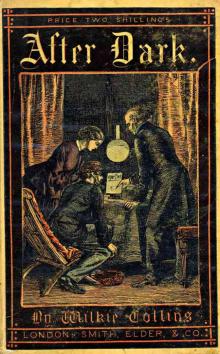 Miss Jeromette and the Clergyman
Miss Jeromette and the Clergyman Man and Wife
Man and Wife The Legacy of Cain
The Legacy of Cain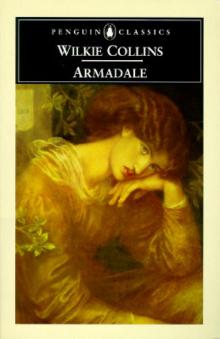 Armadale
Armadale The Frozen Deep
The Frozen Deep John Jago's Ghost or the Dead Alive
John Jago's Ghost or the Dead Alive Poor Miss Finch
Poor Miss Finch The Cauldron of Oil: A Case Worth Looking At
The Cauldron of Oil: A Case Worth Looking At The Poisoned Meal
The Poisoned Meal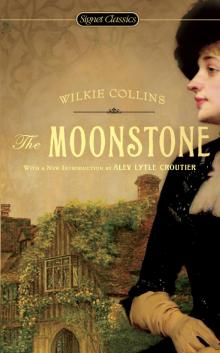 The Moonstone
The Moonstone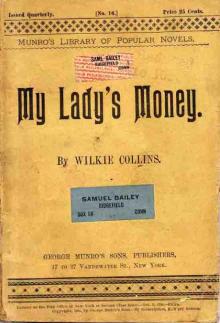 My Lady's Money
My Lady's Money Classic Ghost Stories
Classic Ghost Stories Jezebel's Daughter
Jezebel's Daughter The Devil's Spectacles
The Devil's Spectacles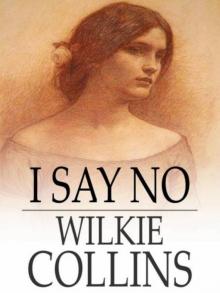 I Say No
I Say No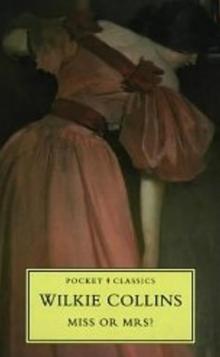 Miss or Mrs.?
Miss or Mrs.? Nine O'Clock
Nine O'Clock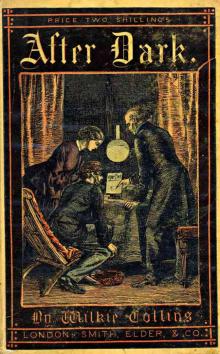 The Lawyer's Story of a Stolen Letter
The Lawyer's Story of a Stolen Letter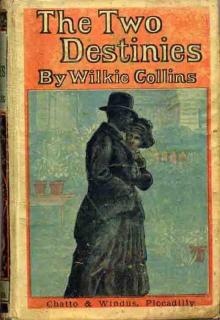 The Two Destinies
The Two Destinies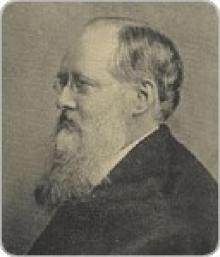 Mr. Percy and the Prophet
Mr. Percy and the Prophet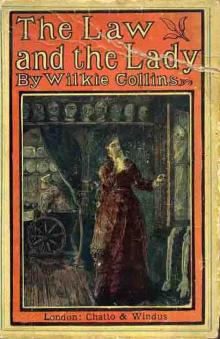 The Law and the Lady
The Law and the Lady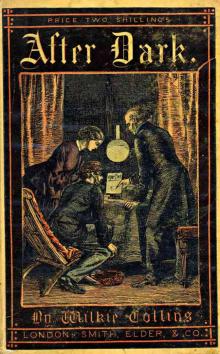 The Nun's Story of Gabriel's Marriage
The Nun's Story of Gabriel's Marriage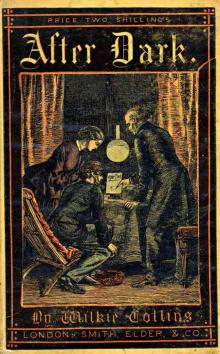 After Dark
After Dark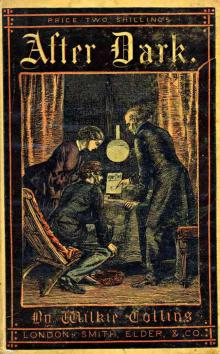 Mr. Captain and the Nymph
Mr. Captain and the Nymph No Name
No Name The Moonstone (Penguin Classics)
The Moonstone (Penguin Classics) Antonina
Antonina Woman in White (Barnes & Noble Classics Series)
Woman in White (Barnes & Noble Classics Series)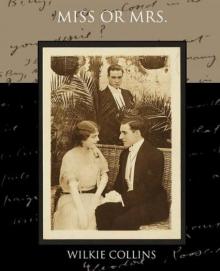 Miss or Mrs
Miss or Mrs The Dead Alive
The Dead Alive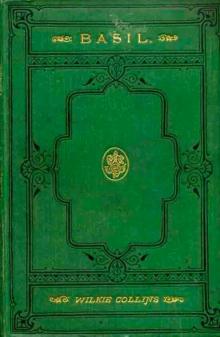 Basil
Basil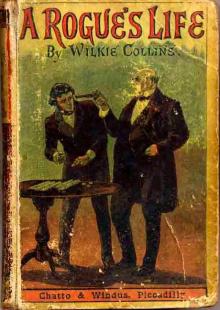 A Rogue's Life
A Rogue's Life The New Magdalen
The New Magdalen Blind Love
Blind Love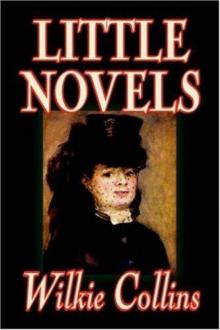 Little Novels
Little Novels The Lazy Tour of Two Idle Apprentices
The Lazy Tour of Two Idle Apprentices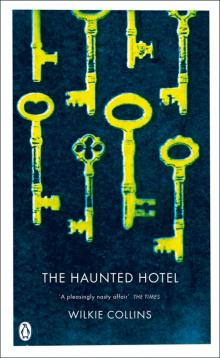 The Haunted Hotel
The Haunted Hotel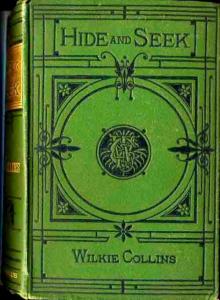 Hide and Seek
Hide and Seek